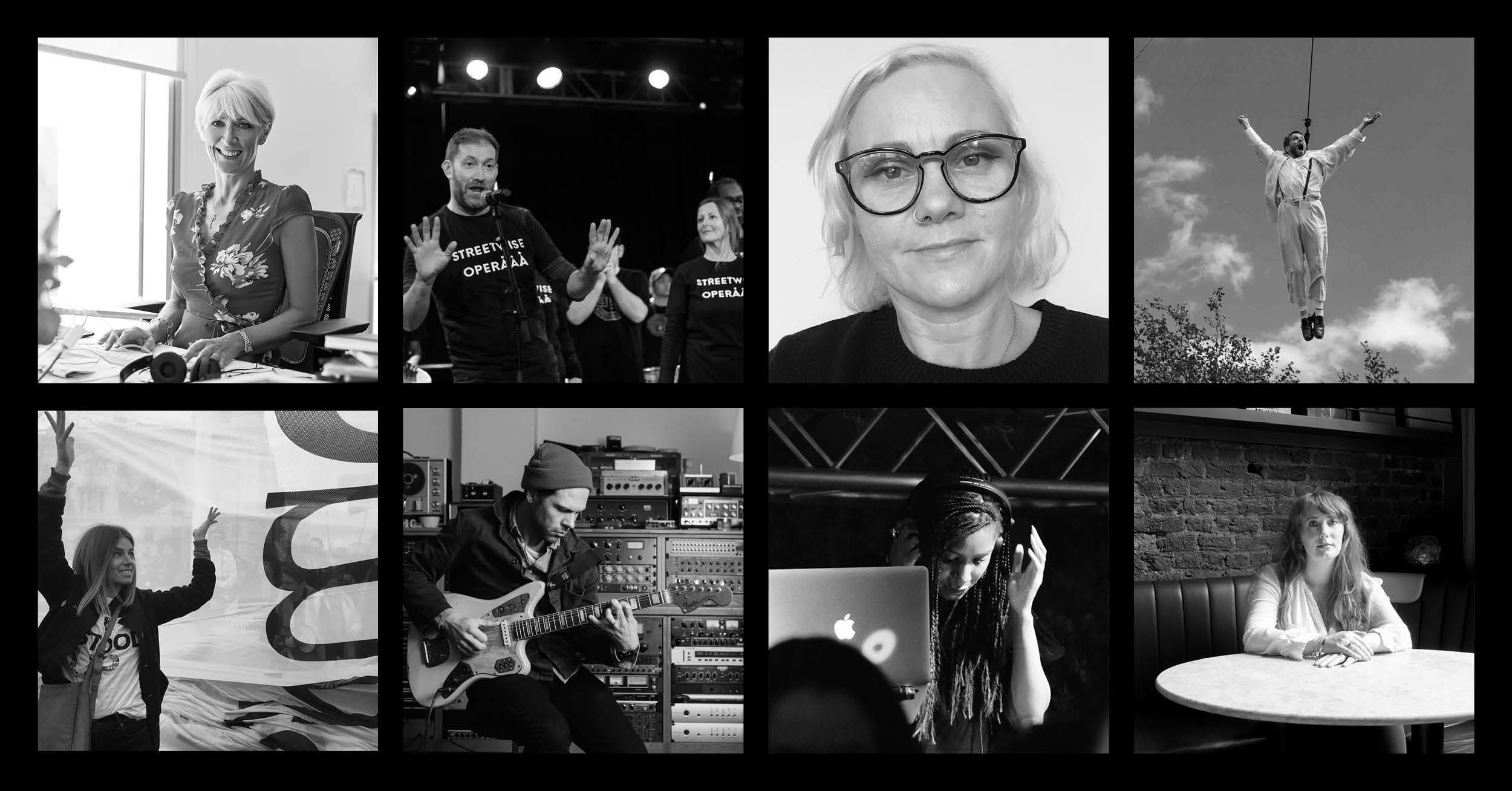Thought provoking ideas

- Written by
- Published date 22 November 2022

In series 1 of the Teach Inspire Create podcast, we asked guests to offer up a thought-provoking suggestion to our listeners. Whether it be a challenge, a thought for you to have, or an action for you to take, we hope that these ideas will lead you to create new pathways of exploration in your and your students’ creative practice.
What I'd like everyone to do is think of something in the world that they really want to change for the better. So, think of something that you're really passionate about and you really want to change, and then go, "How am I going to get this change? It's not good enough just to have people signing a petition. I need to think of something that really provocatively will change." And then work out how you might bring that to life. And that can be a project that you can really do for real. – Rosie Arnold, advertising powerhouse and inspirational female leader.
I think singing can make you feel great. I think there's just lots of evidence now, not only just for your physical health, but also your mental health. And it's a way of joining together and just connecting with your breath, it's very meditative. - Rob Gildon, world recognised baritone and vocal animateur.
What can you do to treasure the person in front of you today? - Sue Hamilton-White, art psychotherapist, artist, MD and founder of non-profit arts organisation, Untapped.
Think of all the different people you can meet and work with, rather than working with people you know, repeating what you know is really boring. It’s about opening your eyes, and opening your ears, and opening your heart to difference. The more interesting, the challenging, the more new: that’s what the art is meant to be about in my opinion. - Jamie Beddard, one of the UK's leading disabled theatre practitioners and Co-Artistic Director for Diverse City.
We've got these online courses on FutureLearn. For the Fashion Values: Nature course, our provocation is how will fashion value nature? So as soon as you kind of think about changing the value system of fashion, and think, well, if Mother Earth was here, sat around the table, what would she have to say about your fashion design or your fashion product or your new business model that you've come up with? How is it benefiting nature? Are you just taking from nature? Are you regenerating nature in any way? And we kind of look at a mitigation hierarchy. So how can you look at evaluating your idea and thinking about is it reducing harm on nature? Is it neutral? Or is it actually positively contributing to healthy and thriving ecosystems? - Nina Stevenson, Education for Sustainability Leader at UAL’s Centre for Sustainable Fashion.
Do the odd day where it is 100% quantity over quality. So, one of the things that I've done a bunch of times with a few different friends is this thing called the 20 song game, and the entire focus is trying to write and record and demo 20 songs in a day on your own. And what's amazing about it is you get to the point where you are completely out of ideas, but it's only 2:00 in the afternoon and that moment is when your kind of true creative self starts to come out. And you get to the end of it, and you look back on it, you sort of see this little person. You're like, that is who I am. That's my true artistic self. And it's all because you've completely abandoned the idea of quality. - Jesse Quin, musician and producer best known as the bass player of the British pop-rock band, Keane.
I think, especially being here today, it's made very clear that a lot of those childhood passions have been indicators of what my future creative self was going to look like. And I think it could be a useful exercise for people to think back, as young as they can remember as a child, what was that thing that you were just passionate about that you absolutely loved from day one? Secondly, I want you to think about what was that thing that you were always doing that people could never pull you away from, that thing that you had to be doing? And thirdly, I want you to think about what you care about? What cause do you feel passionate about? So, when you've thought about those three areas, I want you to create almost a manifesto, a statement of who you are. And I think it's really important that it's in the positive, but just really written in the affirmative. And then refer to that. And know that it can change, it can be refined as you live and grow. But I think it's important for you to reflect and acknowledge who you are and your creative potential because people aren't necessarily going to shout it out to you as you're walking down the street. - Karina H Maynard, cultural curator, educator, producer and consultant who works to improve representation in the arts and culture.
Maybe it'd be nice to do a drawing a day for a week if they could on cheap paper. I don't know if you've ever done this, but when I paint and I look at a painting or a drawing, I can remember exactly what I was listening to, and also sort of what I was feeling when I did it. I think my prompt would be maybe try and remember that in whatever way. It doesn't have to be visually. Or you could just, what I’ve found quite useful, is take a photo of what I'm looking at when I have a particular thought or feeling. And then for some weird reason it seems to encapsulate it. - Annabel Dover, artist and writer.
